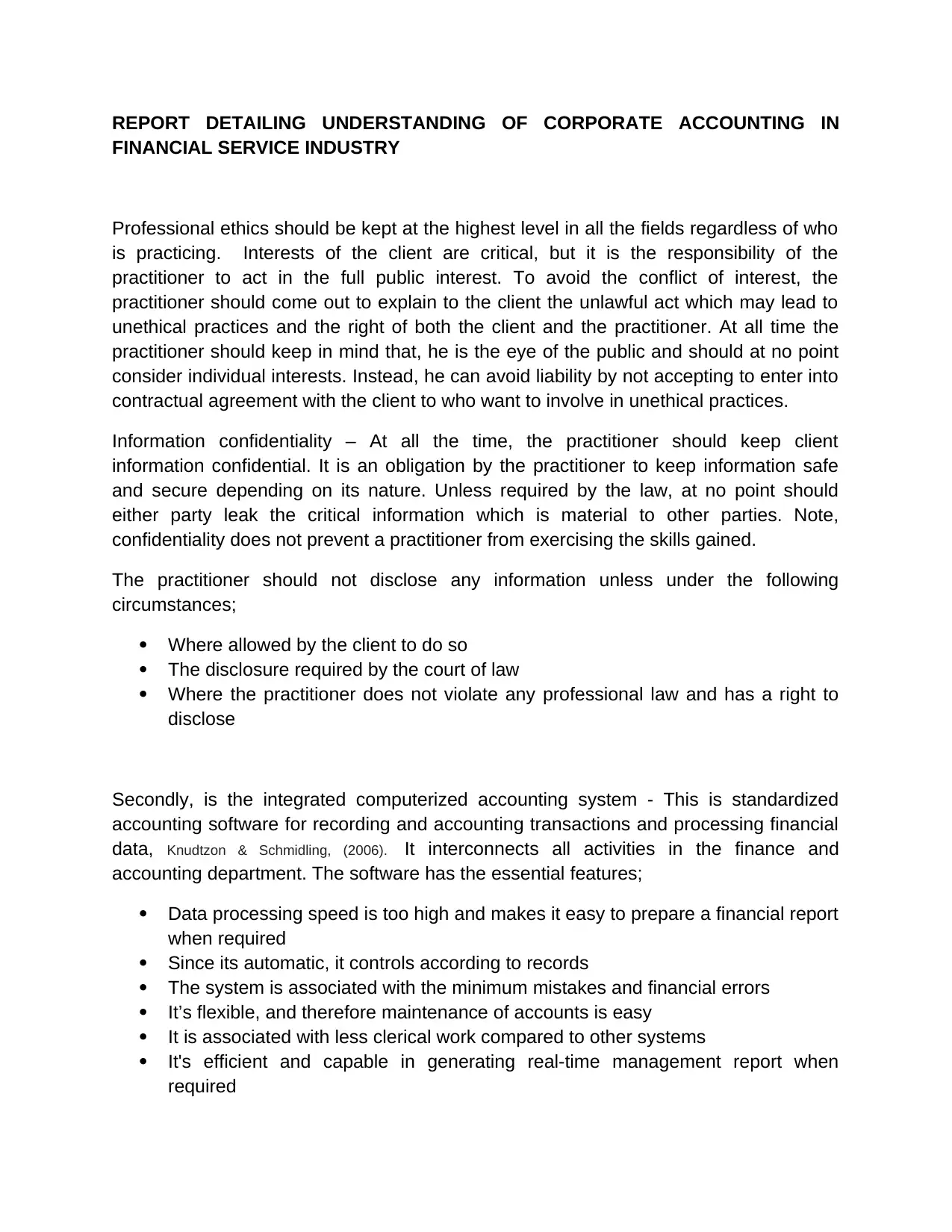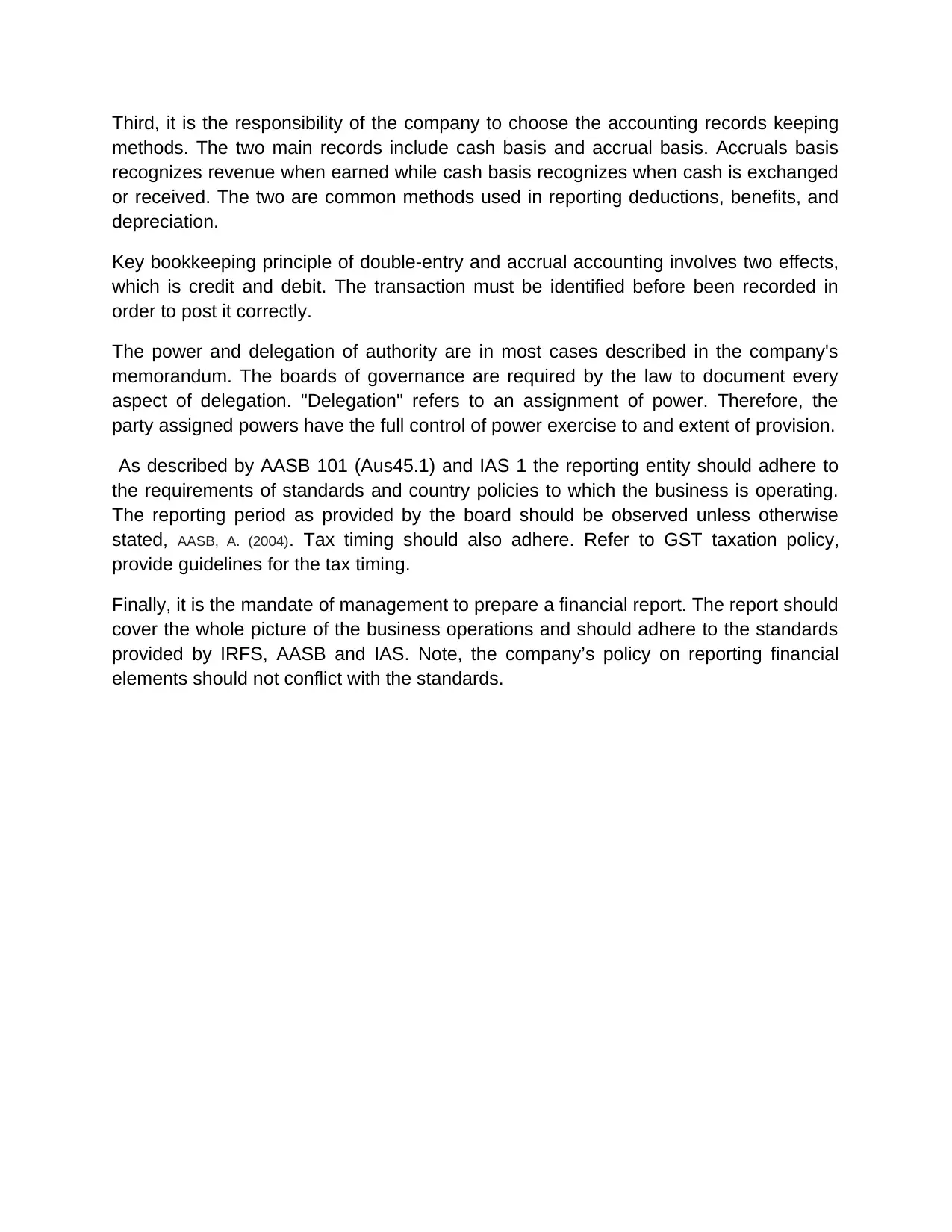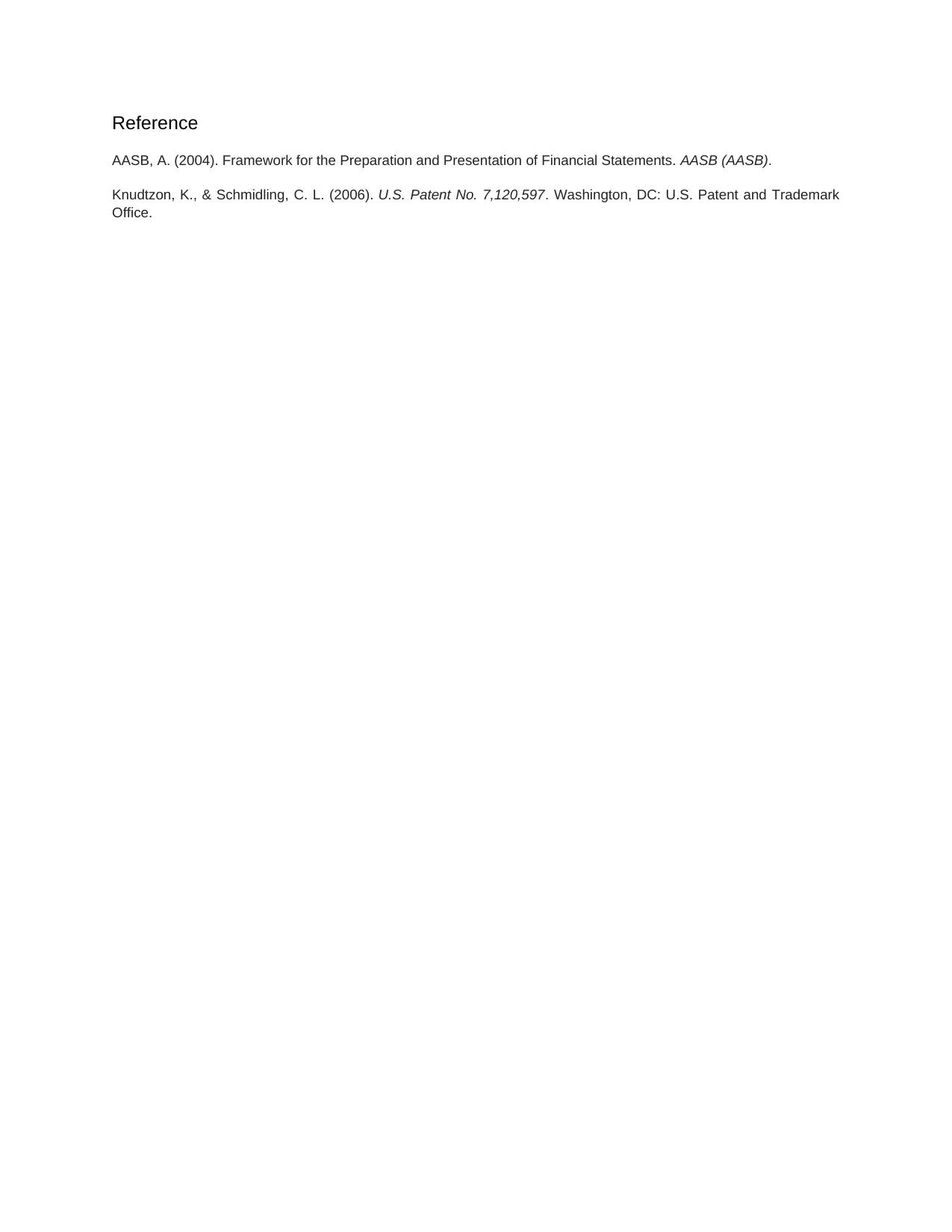Report: Corporate Accounting in Financial Service Industry
VerifiedAdded on 2023/06/04
|3
|725
|179
Report
AI Summary
This report provides an overview of corporate accounting practices within the financial services industry. It emphasizes the importance of professional ethics, including client confidentiality and avoidance of conflicts of interest. The report discusses integrated computerized accounting systems, highlighting their benefits in data processing and financial reporting. It also covers different accounting record-keeping methods (cash and accrual basis), key bookkeeping principles, and the delegation of authority within a company. Furthermore, it addresses the requirements for financial reporting, including adherence to relevant accounting standards (IFRS, AASB, and IAS) and the role of management in preparing comprehensive financial reports that accurately reflect business operations. This report is a valuable resource for students studying finance and accounting, providing insights into crucial concepts and practical applications in the corporate world.
1 out of 3









![[object Object]](/_next/static/media/star-bottom.7253800d.svg)